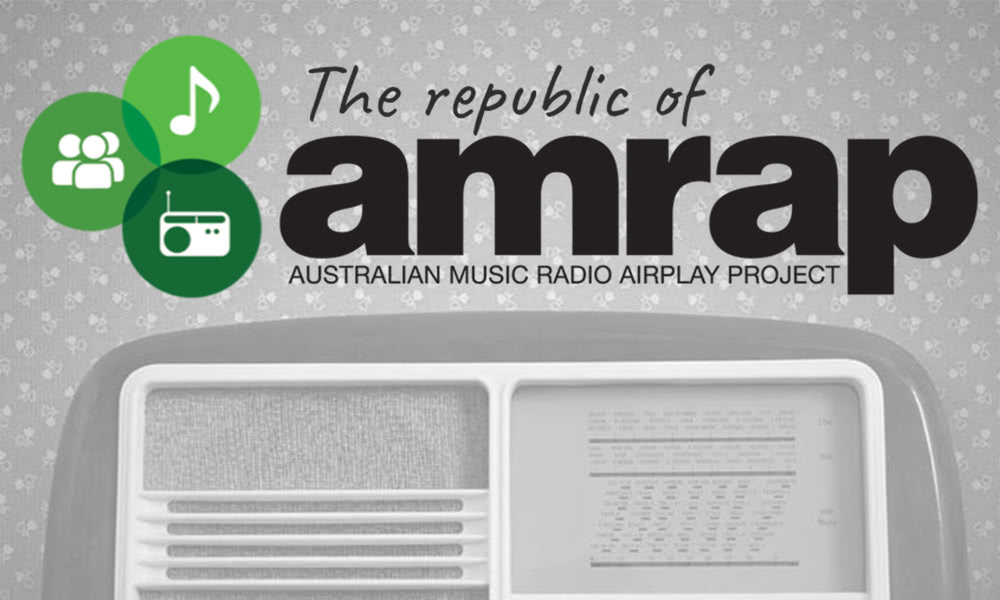Questions remain after CBAA’s Amrap investigation

An investigation into the management of the Australian Music Radio Airplay Project (Amrap) by the Community Broadcasting Association of Australia (CBAA) has found no evidence of past misuse of funds.
However, based on the documents made available this week by the CBAA and the Community Broadcasting Foundation (CBF), it’s unclear what conclusion the report came to on the contentious restructure that the former Amrap team had strenuously protested.
Australia’s community radio sector started the new year with a bang when the staff of Amrap split with the CBAA, its management parent, went “rogue” and accused the organisation of a range of conduct, governance and management issues. A public campaign ensued and 100s of people submitted letters of support against the restructure, while a string of music industry professionals expressed concern about the boilover.
Amrap’s six staff were eventually sacked as a result of their actions and a new team was appointed.
Earlier, in October 2017, a former employee of the CBAA issued a complaint to the CBF about the CBAA’s management of Amrap, alleging the misuse of grant funds.
Amrap’s funding is provided by the Department of Communication and the Arts to the CBF under a funding agreement. In turn the CBF provides CBAA with the funds for Amrap (at roughly $580,000 each year) under an annual CBAA Grant Agreement.
A probe kicked off in April of this year when the CBF board appointed Sydney-based barrister Ben Fogarty to independently investigate the complaints, and accountancy firm Pitcher Partners was tapped to provide accounting assistance and advice.

On Aug. 24, Fogarty completed his investigation and, on Tuesday, the CBF announced its key results.
Though the document has not been issued in full, a synopsis published by the CBF found:
• Funds provided under the CBAA Grant Agreements were used for the primary purpose of managing and further developing the Amrap in accordance with the terms and conditions of those agreements;
• A review of the CBAA’s budgets and financial reports did not identify anything of material concern from an accounting or audit perspective;
• No substantive inaccuracies or incompleteness was identified in respect of the progress and financial reports provided by the CBAA to the CBF;
• There was no undisclosed inaccuracy in the CBAA’s financial statements or declarations it issued to the CBF; and
• The CBF could consider some additional measures of bolstering the governance and oversight of the CBAA’s use of funds for the Amrap.
TIO reached out the complainant for comment. A legal rep responded, “The CBF has refused to provide the complainant with a copy of the investigation report. For that reason, and because of confidentiality obligations imposed by the CBAA, the complainant is unable to comment.”
With the completion of the investigation, CBAA President Phillip Randall commented, “I’m very pleased at today’s announcement by CBF about the outcome of the investigation. The allegations were taken very seriously by the CBAA’s board. Stakeholders can be assured that the investigation was very thorough and the CBAA worked co-operatively at all times with the CBF during that process.”
CBAA’s Chief Executive Officer Jon Bisset added, “Our immediate plans include convening the CBAA’s Amrap Advisory Group, consisting of representatives from the Australian music industry and community broadcasting to assist us in future planning for services to strengthen the relationship between our two sectors.”
CBF President Peter Batchelor also welcomed the findings, noting he was “satisfied that the investigation was thorough, and the findings are clear.”
The CBAA has managed Amrap initiative since its launch 18 years ago. Amrap was revitalized with federal government funding ten years ago with a mandate to get more, new Australian music on the airwaves, and to promote homegrown acts through station websites and social media. Since 2009, more than 2,500 broadcasters from 250 stations have subscribed to Amrap’s AirIt music delivery platform and have ordered more than 250,000 tracks for airplay.
This article originally appeared on The Industry Observer, which is now part of The Music Network.






























